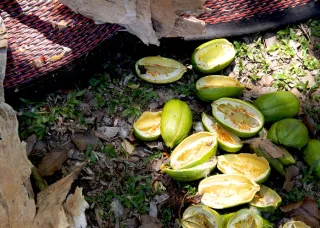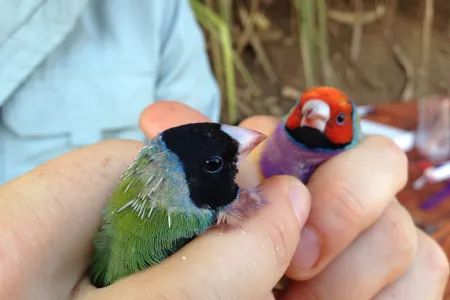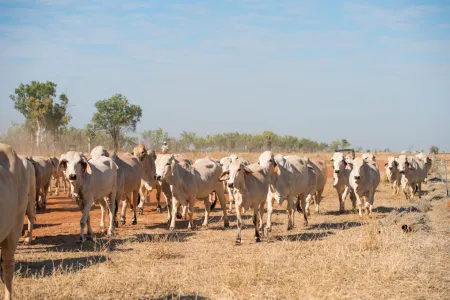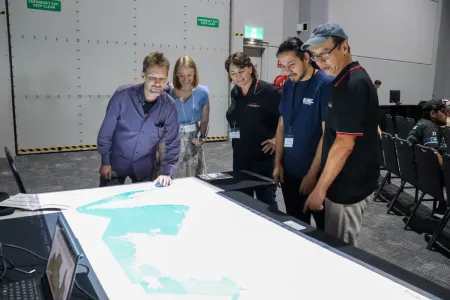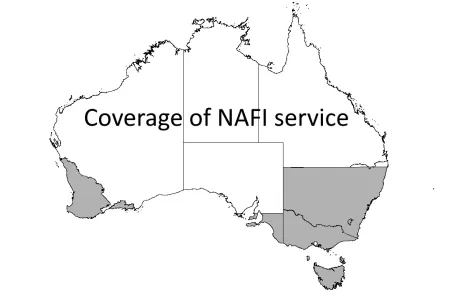RIEL works across four cross-cutting areas of research – Biodiversity Conservation, Communities and Livelihoods, Savanna and Arid Ecology and Water and Catchments.
We have extensive scientific and technical expertise in these areas as well as excellent laboratory and field capabilities.
Our research in these areas is achieving positive impacts for, for example, threatened species, ecosystem services, industry, employment, climate change mitigation/adaptation, and community health and wellbeing.
Our research areas
Research centres and services
RIEL hosts a number of centres and consultancy services.
RIEL is pleased to stand behind the Research Institute for Northern Agriculture, the North Australia Centre for Autonomous Systems, and the North Australia and Rangelands Fire Information service, among others. Other important examples include the Darwin Centre for Bushfire Research and Bioscience North Australia.
While each of these groups stands alone, their research and impacts are woven together with RIEL’s work, and the institute is stronger for it.
Research Institute for Northern Agriculture (RINA)
RINA is addressing the opportunities and challenges of sustaining and developing primary industry in northern Australia with a focus on agriculture, aquaculture and biosecurity research. RINA’s work covers specialist research and training in horticulture, broadacre cropping systems, invasive species and biosecurity, commercial aquaculture, and pastoral production systems and sustainability.
North Australia Centre for Autonomous Systems (NACAS)
NACAS is a Tier 3 research centre within RIEL, specialising in addressing the logistical, regulatory, technical, and analytical challenges associated with drone integration.
NACAS is the only training facility in northern Australia approved by the Civil Aviation Safety Authority (CASA). It offers the VET Certificate III in Aviation (Remote Pilot) AVI30419 course, which includes training for the Remote Pilot License (RePL) and the Australian Remote Operators Certificate (AROC), as well as courses in survey techniques and image analysis.
NACAS plays a vital role in environmental research by facilitating aerial surveys and surveillance across vast areas of the NT. Additionally, it contributes to local livelihoods by empowering First Nations rangers to operate drones and collect reliable aerial data. Through these initiatives, NACAS is helping the NT to harness the transformative potential of drone technology.
North Australia and Rangelands Fire Information (NAFI) service
The NAFI service produces high-quality satellite-based maps of fire activity, digital tools that use these data, and training resources to help land managers and associated agencies across north Australia and the rangelands to better manage fire and Country.
The service relies on the fire management research and user networks of Charles Darwin University (CDU) – the only university based in Australia’s high-frequency fire zone.
The maps and tools are delivered through the NAFI website across much of Australia’s rangelands – around 80% of Australia’s land area. Of particular importance are maps showing hotspots (locations of recently burning fires) and burnt area fire histories.
The NAFI website is now a critical information tool for land managers across the rangelands. With recent severe fire seasons, usage has more than doubled to an estimated 200,000 users a year downloading around 20 million map views. Because many of these users are people who are actively managing fire, this shows that the service has helped improve fire management.
This is particularly seen in the far north where savanna burning emissions reductions projects are operating and where the frequency of the generally more severe late-dry season fires has been significantly reduced.
